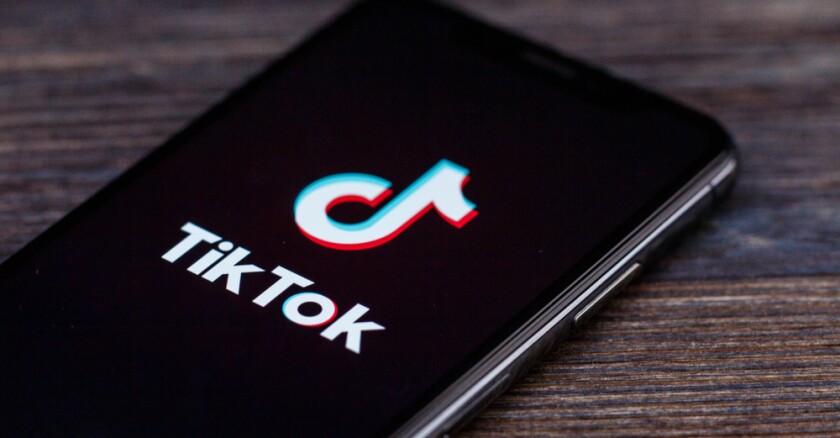"It seems to be very important to our state's security," said CT Senate Majority Leader Bob Duff. "As we've seen the federal government has acted in a bipartisan way to ban apps that are security threats so it seemed like a good idea to follow their lead."
The bills are part of a national wave of similar legislation that would see TikTok struck from government owned or issued devices. So far 20 states and the federal government have banned TikTok from government devices. A Senate bill introduced by Florida Republican Marco Rubio would ban all transactions from social media that operates within the influence of China, Russia or a "country of concern."
Cybersecurity experts argue that TikTok isn't any more of a security risk than any other social media application and that fears of state or national security are overblown.
"If you look at the potential influence and control these social media platforms can exert on their userbase, I think they are all similar," said Michel Laurent, a cyber security researcher and computer science professor at UConn. "The fear is the fact that it's foreign nationals, a foreign entity controls TikTok. But it's not particularly rational to separate TikTok from other companies.
Laurent said that the fears about potential for spying from the Chinese state, through TikTok, had been in part driven by the scandals the company faced over the years. Animosity between the US and China has also notably increased over the course of the pandemic.
"The pandemic crashes everything. It crashes people-to-people relationships between the two countries," said James Palmer deputy editor of Foreign Policy on the podcast Plain English. "And the two sides start exchanging conspiracy theories."
Government officials in both parties have insisted that the moves against TikTok have to do with security concerns. Reporting from Buzzfeed has shown that TikTok had stored US data overseas in China. A report from Forbes showed that TikTok had been physically tracking US journalists that had been receiving leaks from TikTok employees.
"I am on the Cyber Security Task Force for the National Conference of State Legislatures," said Duff. "We hear all the time from our partners at the federal Department of Homeland Security on various threats."
ByteDance, the company that owns TikTok is a Chinese company. When asked whether TikTok's Chinese ownership was a factor in his bill, Sen. Duff gestured at the now-downed Chinese spy balloon.
"We have news today about China putting a balloon over Montana over nuclear sites," said Duff. He insisted that he did not think of the policy as sinophobic or having to do with a new Red Scare.
Social media companies have well-documented problems with intrusive data collection, distribution and use. Meta, the parent company of Facebook and Instagram, leaked half a billion phone numbers in 2021 and faced accusations of algorithmically harming young users by a high-profile whistle-blower that same year. Twitter, being acquired by Elon Musk, has faced a lot of controversy about its moderation and data practices.
Milton Mueller, director of the Internet Governance Project at the Georgia Institute of Technology studied TikTok extensively during the Trump administration following the former president's attempt to ban TikTok (and WeChat) from the United States. He found that TikTok was a profit-driven social media company subject to the same market forces as any other.
"The scenario where people using TikTok undermines our national security is just nonexistent," said Mueller. "The kinds of data you're getting from TikTok is not different than data you're getting from any other social media app. And any data you put on social media, regardless of whether it's a Chinese company, could be seen by the Chinese."
Electronic Frontier Foundation civil liberties director David Greene said that even if TikTok were an unusual security concern that banning it from all state devices was overly broad. Instead of a uniform ban, Name suggested that Connecticut could develop internal security policy to identify which devices were sensitive from a security standpoint and target those.
"If you're concerned about it granting backdoor access to government services and communications that only applies to a certain subset of government devices," said Greene. "Those reasons might not apply to a public university professor might have good pedagogical reasons for using TikTok because it's a major social force."
Sen. Duff, whose legislation includes a directive for state agencies to do security audits and set security standards said that this was his primary goal.
"My proposal is not just targeted or based on one application," said Duff. "It's open-ended and provides the direction of policy so the executive and legislative branches are constantly looking at threat assessments."
Laurent suggested that instead of focusing on TikTok or any social media company in particular that legislation enhancing data protection and privacy should be prioritized.
"I think the public in general would be better served by having better privacy laws that affect all producers of these applications," said Laurent. "So they all take better steps to protect the privacy of the data they collect from their userbase and not just limit that to foreign actors or foreign organizations."
© 2023 The Hour (Norwalk, Conn.). Distributed by Tribune Content Agency, LLC.














